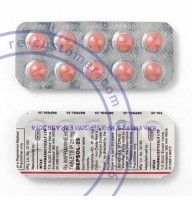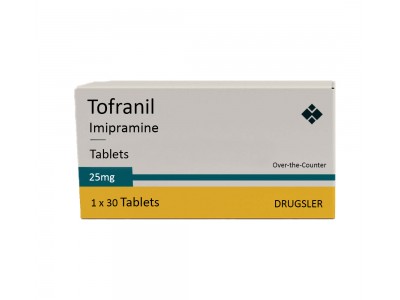Imipramine, like other tricyclic antidepressants (TCAs), can cause a range of side effects. These can vary from person to person and may depend on factors such as dosage, individual sensitivity, and duration of treatment. Common side effects of imipramine include:
Anticholinergic effects: Dry mouth, blurred vision, constipation, urinary retention, and difficulty sweating.
Cardiovascular effects: Changes in heart rate, including tachycardia (rapid heartbeat) or arrhythmias (irregular heartbeat).
Central nervous system effects: Drowsiness, dizziness, tremors, and headache.
Weight gain: Imipramine may lead to increased appetite and weight gain in some individuals.
Orthostatic hypotension: A drop in blood pressure upon standing, which can cause dizziness or fainting.
Sexual side effects: Such as decreased libido, erectile dysfunction, or difficulties with orgasm.
Gastrointestinal effects: Nausea, vomiting, and gastrointestinal disturbances.
Sweating: Excessive sweating may occur, especially during sleep.
Blood-related effects: Rarely, imipramine can affect blood cell counts, leading to agranulocytosis (a severe decrease in white blood cells), though this is very uncommon.
Psychiatric effects: May include anxiety, agitation, insomnia, and changes in mood or behavior, particularly in the initial stages of treatment.
It's important to note that some of these side effects, such as anticholinergic effects and sedation, are more common with TCAs like imipramine compared to newer antidepressants. However, not everyone experiences all side effects, and some individuals may tolerate imipramine well with minimal adverse effects.
If you experience any concerning or severe side effects while taking imipramine, it's essential to notify your healthcare provider promptly. Adjustments to dosage or treatment plan may be necessary to manage side effects effectively while still benefiting from the medication's therapeutic effects. Regular monitoring and follow-up appointments with your healthcare provider are important to ensure safe and effective treatment with imipramine or any other medication.

